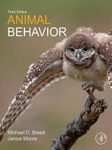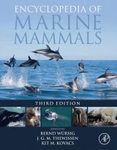![Advances in Ecological Research, Volume 66 Advances in Ecological Research, Volume 66]()
Click to have a closer look
About this book
Contents
Customer reviews
Biography
Related titles
About this book
Pluralism in Ecosystem Governance, Volume 66 in the Advances in Ecological Research series, highlights new advances in the field, with this release including chapters on An exploration of the effects of political pluralism on decision making for sustainability: Implications for membership on public sector boards, Transdisciplinary agroecological research on biodiversity and ecosystem services for sustainable and climate-resilient farming systems in Malawi, Pluralistic approaches in research advance farming and freshwater sustainability efforts in the Great Lakes Basin, Pluralism to manage the complexity of ecosystem services co-production, Of green spaces and grey areas: An Ethnography of Ecosystem Governance in Peri-Urban Bangaluru, India, and more. Additional chapters include Charting Evidence-based Biodiversity Pathways for Sustainable Development in Canada, Community-scientist collaboration in the creation, management and research for two new National Wildlife Areas in Arctic Canada, Rigid social-ecological governance: how discourse inertia has limited pluralism in Doñana, and a variety of other topics.
Contents
Contributors
Introduction: Pluralism in ecosystem governance
Chapter One: Transdisciplinary agroecological research on biodiversity and ecosystem services for sustainable and climate resilient farming systems in Malawi
Chapter Two: Community-scientist collaboration in the creation, management and research for two National Wildlife Areas in Arctic Canada
Chapter Three: Enhancing collaboration across the knowledge system boundaries of ecosystem governance
Chapter Four: Of green spaces and grey areas: An ethnography of everyday forest management in peri-urban Bengaluru, India
Chapter Five: Posthumanist Pluralities: Advocating for nonhuman species’ rights, agency, and welfare in ecosystem governance
Chapter Six: Saving the Sonso Lagoon: contesting entrenched local powers and building practical authority in wetland governance in Valle del Cauca, Colombia
Chapter Seven: Participation as a pathway to pluralism: A critical view over diverse disciplines
Chapter Eight: Pluralistic approaches in research aim to advance farming and freshwater restoration in the Great Lakes basin
Chapter Nine: Disrupting the governance of social-ecological rigidity traps: Can pluralism foster change towards sustainability?
Chapter Ten: Governance to manage the complexity of nature's contributions to people co-production
Customer Reviews
Biography
Jen Holzer holds a PhD from the Technion – Israel Institute of Technology in Environmental Studies, an MPA in Environmental Science and Policy from Columbia University, and a BA from Swarthmore College. Her doctoral work evaluated the research-implementation gap in social-ecological research in Europe using case studies in Spain, Scotland, and Romania, and provided recommendations that fed directly into enhancing European research infrastructures. Previously, she was a project manager for climate change mitigation and energy efficiency programs in California and across the US. She is particularly interested in improving the effectiveness of transdisciplinary science, integrating social sciences research and practice for better environmental decision-making.
Prof. Julia Baird’s research focuses on the human dimensions of water resources. She is particularly interested in water resilience, improving outcomes of water governance by improving processes, and agricultural decision-making and its impacts on water.
Gordon Hickey completed a Bachelor of Forest Science degree (Honours) at the University of Melbourne, a PhD at the University of British Columbia, and a Master of Public Administration (Executive) at the Australian and New Zealand School of Government, Monash University. He is the Founding Head of the Sustainable Futures Research Laboratory specializing in sustainable natural resource management, policy and governance. His work employs qualitative, quantitative and mixed-method techniques to examine diverse socio-ecological and socio-technical systems with a view to informing decision-making and supporting innovative public policies. He has conducted research in over 30 countries on six continents and engages in multi-disciplinary and international research teams working in collaboration with end-users including government, the private sector and local/Indigenous communities. He is presently an Associate Editor of the journals Food Security and Society & Natural Resources.











































